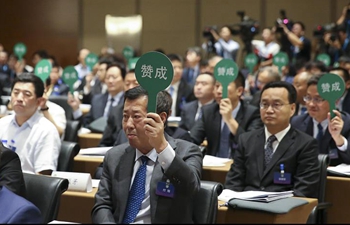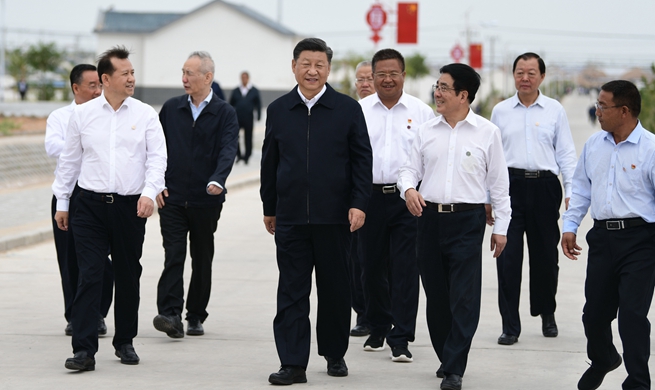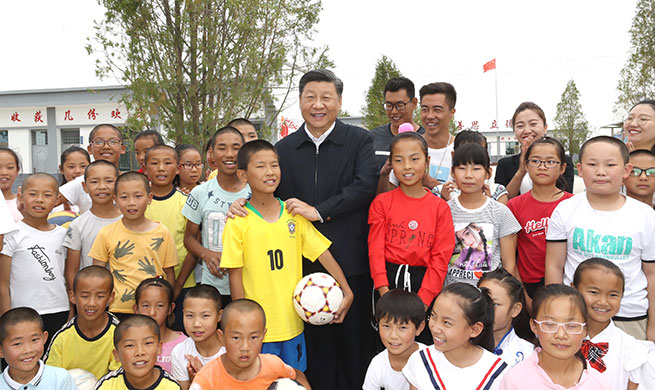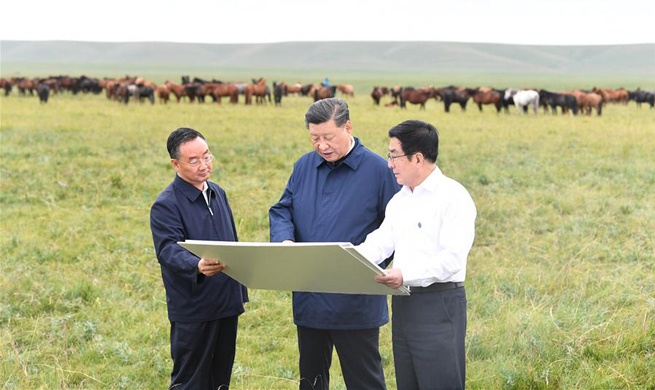WARSAW, Aug. 22 (Xinhua) -- An August agreement to import some 35,000 tonnes of U.S. beef into the European Union will have a negative impact on Polish producers, who are already in a vulnerable position, argues a Polish expert.
On Aug. 2, the EU signed a deal with the U.S. establishing that 35,000 tonnes of non-hormone treated beef from the U.S. will enter European markets over the next seven years, following negotiations between the EU and the U.S. administration led by President Donald Trump.
Under the previous terms, a 45,000-tonne quota of non-hormone treated beef was opened by the EU to qualifying suppliers, which included the U.S. The new deal allocates the largest portion of the quota to American producers, with the remaining amount left available for all other exporters.
"From the point of view of the Polish producer, this will mean less production or no access to the EU market," Krzysztof Tolwinski, president of the Federation of Family Farms, told Xinhua.
"The Polish farmers are the weakest link (...) as they do not have the protection of the Polish state. It's hard to imagine that Italian, Spanish or French farmers will be the ones to lose,"
"When imports of beef from the U.S. are rising, and combined with the Mercosur beef quota, the beef production in Polish businesses will fall by 20 percent to 30 percent and processing plants will close, proportionally to the fall in production," Tolwinski said.
"Polish farmers are losing, being hostages to the ill thought and reckless international politics of the government, who is rather working in favor of the U.S. farmer than of its own farmers," he said.
"The main reason for the unblocking of U.S. beef imports after 20 years is the aggressive U.S. policy," Tolwinski said.
"President Trump threatened during his last visit to Europe that he will retaliate against Germany when it comes to the automotive industry, against France on cheese and wine, etc. if American farmers will not have free access to European markets," he said.
Tolwinski argues that the Polish beef industry has huge potential, but the lack of governmental strategy and the international context are impediments to its development.
The former parliamentarian estimated that there are 70,000 professional beef producers in Poland but there could be more if the full potential of meadows and pastures were used.
Western European producers usually buy meat from Poland and process it, applying their own brands and re-exporting. Some 80 percent of beef produced in Poland goes to export, Tolwinski said.
"It's worth noting that the competitiveness of Polish beef derives from low costs -- and this is not caused by the low quality of the product, but by the fact that EU partners treat the Polish market as a colony," he said.
Tolwinski said that Polish beef is of high quality because the means of production are still mainly traditional, excluding the use of hormones, antibiotics or industrial feed. He believed Poland should definitely look to export to China, especially in the context of diminishing opportunities on the common European market.
"The Chinese market is clearly an opportunity for us, who have such good and healthy beef, though evidently there is a lack of efficiency in this direction from our government," he said.













